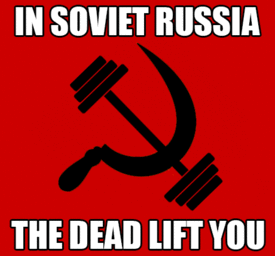We are pleased to announce that as of March 4, 2025, an updated Rich Text Editor has been introduced in the MyFitnessPal Community. To learn more about the changes, please click here. We look forward to sharing this new feature with you!
New to this and have a few questions...thanks! (Wall of text, sorry!)

boredfatman
Posts: 100 Member
Hi all,
Well, this year after my kids had renamed me "Fatman" instead of Batman, i realised I really needed to change.
So, on the 6th of January I joined a gym, (If i pay for it i'm more motivated to go), and decided to eat more healthily too.
I am Male, 5'9" and currently weigh 182lb or 13 stone. I have too much belly and at least one too many chins!
I had inguinal hernia surgery last September so hadn't done any exercise since then.
Now I am going to the gym 5 days a week, I do 30 minutes Elliptical training at a high intensity, 4 sets of 10-15 reps on each of the weight machines and then finish doing 5km on the bike.
I have been drinking nothing but water and the occasional cup of tea since I started.
I am trying to limit my daily calorie intake to 1700 and I have replaced unhealthy snacks with unsalted cashews, sunflower seeds and grapes...all counted within my calorie allowance for the day.
After two weeks I haven't seen any difference in my body apart from my arm muscles might be slightly more visible and I weighed myself on Friday of this week on the same scales at the gym and I haven't lost an ounce. Albeit, I do drink a lot of water at the gym.
When should I expect to see results of any sort? I'm not being unreasonable, i.e. I dont expect immediate differences but I do want to know if I will reap rewards from this soon.
Its the hardest Ive worked on my health in all my adult life...so I want to see it reap benefits.
I am also a shift worker...sleep isn't as fulfilling as it should be.
I must add though that I do feel mentally much stronger since exercising.
Any tips and advice would be gratefully received.
Thanks
BFM
Well, this year after my kids had renamed me "Fatman" instead of Batman, i realised I really needed to change.
So, on the 6th of January I joined a gym, (If i pay for it i'm more motivated to go), and decided to eat more healthily too.
I am Male, 5'9" and currently weigh 182lb or 13 stone. I have too much belly and at least one too many chins!
I had inguinal hernia surgery last September so hadn't done any exercise since then.
Now I am going to the gym 5 days a week, I do 30 minutes Elliptical training at a high intensity, 4 sets of 10-15 reps on each of the weight machines and then finish doing 5km on the bike.
I have been drinking nothing but water and the occasional cup of tea since I started.
I am trying to limit my daily calorie intake to 1700 and I have replaced unhealthy snacks with unsalted cashews, sunflower seeds and grapes...all counted within my calorie allowance for the day.
After two weeks I haven't seen any difference in my body apart from my arm muscles might be slightly more visible and I weighed myself on Friday of this week on the same scales at the gym and I haven't lost an ounce. Albeit, I do drink a lot of water at the gym.
When should I expect to see results of any sort? I'm not being unreasonable, i.e. I dont expect immediate differences but I do want to know if I will reap rewards from this soon.
Its the hardest Ive worked on my health in all my adult life...so I want to see it reap benefits.
I am also a shift worker...sleep isn't as fulfilling as it should be.
I must add though that I do feel mentally much stronger since exercising.
Any tips and advice would be gratefully received.
Thanks
BFM
0
Replies
-
No useful answers I'm afraid, just wanted to say hello as I know how lonely it can be on the boards when no one answers

Anyway, sure you're heading in the right direction ... keep going for it
xx0 -
Congrats on your new lifestyle! I'm not a fitness expert, I'm just someone like you who's been unhealthy and worked to get healthier. The exercise sounds great but I'm thinking you're not eating enough calories--certainly for a man. I don't know how many calories you need to eat but with so much activity, your body goes into starvation mode if you don't eat enough. Also, 2 weeks is not enough time to expect results. You may not see the scale number change, but your body is replacing fat with muscle so you're more apt to see a change in the way your clothes fit before your scale moves much. And weigh yourself when you first wake up. That way the measurement is more consistent. Give it a few more weeks before expecting to see much. It'll happen, just stick with it and don't give up. Good luck.0
-
Thank you for the replies. I have heard of this "starvation mode" quite a bit. Does it really have that much of an effect?0
-
You want to lose 20lbs---by your profile. That's not alot, and weight loss is slower the less you have to lose. You have to really watch your weighing and measuring of food, since it doesn't take much of a mistake to stall weight loss. You should have MFP set to lose .5 lbs a week. You will have to be very patient. Take measurements, since sometimes you'll see improvement there. Don't give up and you'll get there. Best of luck.
 0
0 -
Just popping in to say welcome, and congrats on making the decision to change!!! And to let you know you a lot of us can relate to the frustration - if it's any consolation, when i first started i diligently logged/hit calorie goals/moved my parts and NOTHING happened. not an ounce for over a month!!
i would have packed it in out of sheer frustration if i hadn't found a) some friends who were able to talk me off the ledge! (so to speak lol), and who were Succeeding IN getting to their goals - that really helped seeing other people my age who were doing it and who understood the challenges when first starting out.. and b) i started reading a lot of the forums and topics.. (which kinda backfired for a wee bit because i started trying all kinds of different stuff.. flipping back and forth trying everything .. ) eventually i figured out there is a ton of knowledge and help available here to take advantage of, and knowledge is power.. but you gotta do your own research as you learn and determine what is true (for you) and what works..
-
the most important thing somebody posted for me (i wish i could remember who it was because she explained it a lot better, and it kept me sane during those moments of crazed frustration) was that our bodies are not linear - they respond to our efforts when they feel like it, not when we want em to lol.. so as long as i know i'm making healthy choices, watching portion control and moving my parts, it WILL happen. Hang in there - you're doing great and your hard work WILL show the results .... promise!0 -
boredfatman wrote: »Thank you for the replies. I have heard of this "starvation mode" quite a bit. Does it really have that much of an effect?boredfatman wrote: »Thank you for the replies. I have heard of this "starvation mode" quite a bit. Does it really have that much of an effect?
"Starvation mode" as mentioned above, does not exist for a normal person. People will jump down your throat for even mentioning it. If you want to know what it really refers to, look up --the Minnesota study--starvation.0 -
Thank you. I'm enjoying the gym, there are two weight machines that kill me but hopefully that will improve.
I'm also drinking a ton of water, (and constantly needing the loo as a result!), is this really as good for weight loss as people say?0 -
Again, I can only speak for my own experience. I reduced my calories intake and upped my activity for 6 weeks and didn't lose a pound. Very discouraged! Then I had company visit for a weekend and suspended my "diet", ate whatever I wanted for 2 days. The next day the scale went down 2 pounds. As a woman, I was eating 1200 calories. Now my goal is 1650 and I'm losing but am close to my goal. Then I'll up my intake to around 1900 to maintain.0
-
marylouise58 wrote: »Again, I can only speak for my own experience. I reduced my calories intake and upped my activity for 6 weeks and didn't lose a pound. Very discouraged! Then I had company visit for a weekend and suspended my "diet", ate whatever I wanted for 2 days. The next day the scale went down 2 pounds. As a woman, I was eating 1200 calories. Now my goal is 1650 and I'm losing but am close to my goal. Then I'll up my intake to around 1900 to maintain.
That's interesting thanks, I will keep that in mind. I keep hearing people recommending a cheat day every now and the. But I am worried I would simply fall straight back into bad habits.0 -
If you're not carefully measuring your food, do so. If you are, be patient. There is lots of noise in scale data and over 2 weeks it's easy for the noise to drown out the fat loss, especially when you don't have a lot to lose. Weight loss isn't always a steady X pounds/week, it's 2 weeks flat, then 3 pounds in 4 days, then back up a pound for a week.0
-
Two weeks is a very short time - especially in your 50's. (Talking from experience!)
If you are only eating 1700 calories and not eating back your exercise calories that is being very, very aggressive when you don't have much to lose and are exercising hard.
You may be able to sustain it for a while but you are asking a lot of your body, new and intensive exercise in a large calorie deficit is a good recipe for burning out.
Slow down a bit - think further ahead than wanting to see immediate results.
Personally wouldn't go for more than 1lb / week loss and would also separate cardio and strength training. Machines are a lot better than nothing but you may see better results from a more structured and challenging strength routine.0 -
I allow 1 day a week to eat whatever I want--that usually means BACON! I plan for it and look forward to it and don't log that day. But don't go crazy. Allow yourself one thing--have a meal at your favorite restaurant, order your favorite pizza (small), eat your favorite ice cream. Then the next day start logging again. Then you're back to OWNING IT and get right back on track.0
-
Hello. Oh, kids are brutally honest, aren't they?! Lol. Good for you for joining a gym, you are definitely on the right track! I think you should google a BMR calculator because 1700 calories doesn't sound like nearly enough!0
-
Just to clarify I'm in my 30's not fifties! Man, my profile pic must look bad ha ha! Maybe I should up my calories a bit then. I certainly don't want to burn out. I'm sticking with machines at the moment as I don't have the confidence to use the free weights at the gym and also I wouldn't have the right technique so therefore would probably just end up injuring myself.
Thank you for all the suggestions...!!0 -
It took me 3-4 weeks to see any change on the scale. Hang in there.
Exercise can cause your muscles to retain water as they rebuild. That's in addition to, as you mentioned, the fact that the food and drink floating around in your stomach and intestines can also affect your "weight." Some people also use a tape measure (chest, waist, hips, thighs, etc) every month or so because the scale isn't always the best metric--especially if you're strength training.
We all have a day or two where we eat more than we intended. The trick to making this work long-term is realizing it was one meal or one day or one vacation and that has zero impact on your ability to make the right decision tomorrow. It's about building a healthy life, not driving yourself bonkers demanding "perfection."
It's about building a healthy life, not driving yourself bonkers demanding "perfection."
0 -
True, very true. It's interesting to note that muscles retain water as they rebuild...I didn't know that. So much to learn about all of this.0
-
boredfatman wrote: »Just to clarify I'm in my 30's not fifties!
Oops sorry! Blame my old eyes, ....
Seriously though, try and use your weight loss phase as practice for weight maintenance for life. That means building healthy habits (activity and not just exercise) and finding a diet (noun, not verb) that you can stick to for life.
Adding a lot of stressors all together (shift work/poor sleep, big calorie deficit, new exercise regime) is asking a bit too much IMHO.
0 -
I'm wondering if you really know how many calories you are eating. If you are guessing then you might very well be eating more calories than you think.
Lots of us have been surprised when we first bought a food scale and weighed the foods we were eyeballing or measuring with cups and spoons!
Expecting to see a difference in your body (in the mirror) in two weeks might be wishful thinking. A nice loss of 2 pounds a week would only be a 4 pound loss in 2 weeks and I'm not sure that would be real noticeable, unless you lose in your face first. You might feel different if you lose in your waist and your pants are looser of course. Lots of people post asking how long before you could see the difference and some members don't see a difference for a long time, even though they are losing and their measurements are decreasing.
I agree with others who say you may not need to eat only 1700 calories a day if you only have 20 pounds to lose, because 1 pound a week would be great to begin with. But, I really think you probably are eating more than 1700.
0 -
Hey Batman,
(I can't call you Fatman, I just can't) all good advice up there but there's something you mentioned that nobody has addressed and it's shift work. Shift work can put a damper on your weight loss big time. Here's an article that has some great info on surviving shift work http://robbwolf.com/2013/03/06/big-ol-pile-shift-work-dealing-off-hour-work/
Also, there's a blog called nomnompaleo. The author is a shift worker and she has some lifestyle tips that may be of some use.
Good luck!0 -
Thank you! Going to read this now...0
-
oh duh.... thanks spun - totally forgot that was one reason i replied - I've been a shift worker for 30 years, rotating shifts on days/evenings/midnights - and it plays a bit of havoc with sleep and schedules, not to mention finding it hard to face tuna at 3am some nights! But it's just another challenge like everyone has theirs, and the good news is it does get easier as you learn more and more.. (and thanks @ spunmommy.. i may check out that thread too lol).0
-
Up until recently I would always have a snickers or twix from the vending machine if I started early, around 4:30AM. Now avoiding those machines like the plague. Whats worse is that they are part subsidised where I work!
0 -
Have you read forum superstar SideSteel's "Guide to Get You Started" post yet? If not, it's well worth the time.
Two weeks isn't enough time to see many results, especially if you've just started a new exercise routine and are retaining water. Give yourself 4 weeks. If you're still seeing no progress, then you're either overestimating exercise calories, underestimating food intake, or both. It's completely normal to do so; most people, even trained dietitians, are terrible at estimating calorie intake, and most fitness machines and databases overestimate calories burned in exercise. (On estimating calorie intake, see this article and the discussion in Marion Nestle and Malden Nesheim, Why Calories Count.) In that case, either work on estimating more carefully, or—if you prefer a simpler solution—just keep estimating as you are but reduce your total calorie goal.
While there is such a thing as "starvation mode," it is literally starvation. It's a reduction in total energy expenditure caused by two things: (1) When you lose lots of weight, you need less energy to keep going. Your BMR (basal metabolic rate) drops proportionally to your weight loss. (2) When you're seriously under your caloric needs, you stop moving except when it's absolutely necessary. Subjects in the Minnesota Starvation Study became lethargic and carried out their assigned tasks grudgingly.
There's some evidence that formerly obese people who lost a lot of weight very quickly need less energy to maintain at their new weight than people who have always been that weight. But you're not in that position.
Good luck!0 -
cheshirecatastrophe wrote: »It took me 3-4 weeks to see any change on the scale. Hang in there.
Exercise can cause your muscles to retain water as they rebuild. That's in addition to, as you mentioned, the fact that the food and drink floating around in your stomach and intestines can also affect your "weight." Some people also use a tape measure (chest, waist, hips, thighs, etc) every month or so because the scale isn't always the best metric--especially if you're strength training.
We all have a day or two where we eat more than we intended. The trick to making this work long-term is realizing it was one meal or one day or one vacation and that has zero impact on your ability to make the right decision tomorrow. It's about building a healthy life, not driving yourself bonkers demanding "perfection."
It's about building a healthy life, not driving yourself bonkers demanding "perfection."
I drop 2 lbs when I don't exercise for a few days. So yes, muscles retain water! Could easily hide a 2-3lbs loss of FAT loss.0 -
Change your work outs. Dont do the same thing every day0
This discussion has been closed.
Categories
- All Categories
- 1.4M Health, Wellness and Goals
- 391.6K Introduce Yourself
- 43.5K Getting Started
- 259.7K Health and Weight Loss
- 176.1K Food and Nutrition
- 47.5K Recipes
- 232.3K Fitness and Exercise
- 444 Sleep, Mindfulness and Overall Wellness
- 6.4K Goal: Maintaining Weight
- 8.5K Goal: Gaining Weight and Body Building
- 153.1K Motivation and Support
- 8.1K Challenges
- 1.3K Debate Club
- 96.4K Chit-Chat
- 2.5K Fun and Games
- 3.3K MyFitnessPal Information
- 16 News and Announcements
- 1.2K Feature Suggestions and Ideas
- 2.3K MyFitnessPal Tech Support Questions











